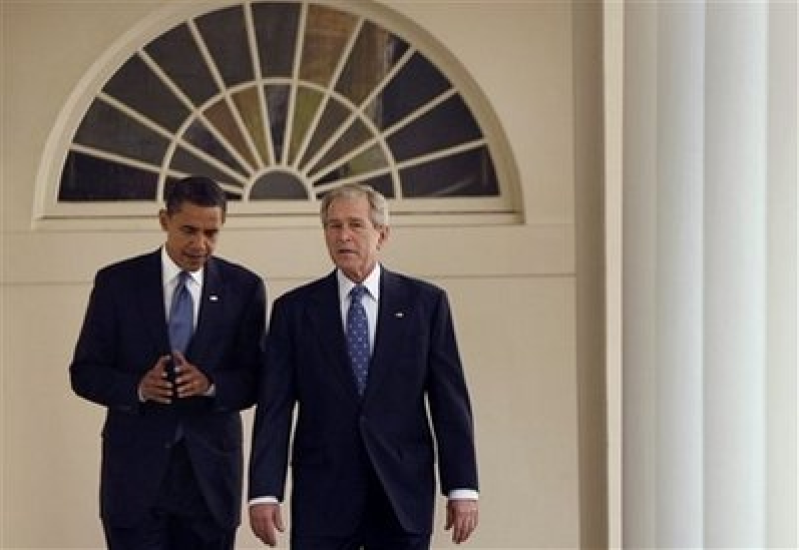
WASHINGTON – For Christian right leaders, Sen. Barack Obama’s victory last week was a huge setback that left some in the midst of a grieving process. While things may not be going well for the movement, some of its leaders vowed to not only survive under an Obama administration but to thrive.
“Nothing unites Christian conservatives more than a common enemy, and here the enemy is a radical liberal agenda,” said Rebecca Hagelin of the conservative think tank Heritage Foundation on Christian Broadcasting Network on Monday.
Hagelin made sure to clearly state that president-elect Obama himself is not the issue, but rather a “nation and a Christian movement” that she believes has fallen asleep and left the door open to a radical liberal agenda.
“There are a lot of dangerous social agenda items and I think you will see the church rise up to fight these like never before,” she contended.
Issues at stake, she noted, include a long list of measures preventing abortion - such as parental notification, informed consent and bans on partial birth abortions – and free speech if the Fairness Doctrine is passed into law.
Similarly, Wendy Wright of Concerned Women for America predicts that Obama’s radical leftist policies could have a reverse effect on many Americans.
"If [president-elect Obama] implements the policies that he says that he believes," Wright said, "many people in America ... may be shocked enough that we'll see the pendulum swing the other way."
While David Kuo, CEO of the social networking site Culture11.com for the cultural conservatives, also foresees great opportunity for conservatives, he thinks that the movement will ultimately evolve to be more progressive in the next few years.
He highlighted that the movement is undergoing a generational shift and that it is likely to stay socially conservative but be more progressive in terms of the agendas it advocates for.
“I think the religious right has an enormous opportunity to be reconstituted in a way that may be even more reflective of an agenda that Jesus might pursue,” Kuo said, according to ABC news.
Some evangelical leaders have already begun to pursue agendas beyond the movement’s big three issues of abortion, marriage and justices.
Well-known conservative evangelicals such as the Rev. Joel Hunter, a megachurch pastor in Florida, and the Rev. Richard Cizik of the National Association of Evangelicals (NAE), have embraced the global warming issue and are forging a new relationship with the Obama administration and Democrats.
Both leaders believe in consensus-building and working with those they differ with.
Hunter, while adamantly against abortion, helped draft the Democratic Party’s new abortion platform that states its support for a women’s right to choose but at the same time, also declares its support for the reduction of abortions in America. Hunter delivered the closing prayer at this year’s Democratic National Convention.
It was also Hunter who prayed with Obama by phone last week before the president-elect went on stage in Chicago’s Grant Park.
"What really works in this country is not inciting the base, but making partnerships with people with different views to advance your agenda," Hunter said, according to The Associated Press. "Those who don't will marginalize themselves politically. I don't think advancement of a cause primarily by attack is the way of the future."
The politically-engaged megachurch pastor is also against gay marriage, but supports giving gays some form of legal recognition of their relationship.
Fellow evangelical leader Richard Cizik is likewise optimistic about working with the Obama administration.
Cizik, who has angered the Christian right with his advocacy on climate change, believes the incoming president understands that social problems are morally rooted.
He says centrist evangelicals are in a better position than the religious right to work with the new administration.
“The strategy is very different from the past. The religious right practiced this zero sum game where somebody else has to lose for us to win,” commented the Rev. Richard Cizik, vice president of the National Association of Evangelicals, during an election analysis teleconference on Wednesday.
“And our [centrist evangelical] strategy is a common good that says we are all in this together,” he said. “That means we learned as evangelicals how to collaborate with whom we disagree.”
While this emerging breed of centrist evangelicals is finding itself in a comfortable position with the new administration, the Christian right movement still needs to decide how it will approach a more liberal post-Bush White House.
“Do they want to be an oppositional force, lambasting the administration at every turn, which can help their organizations raise money?” said Mark Rozell, a political science professor at George Mason University, to AP. “Or do they find ways to intersect with new leadership and either try to minimize damage to their agenda or move forward issues where they can find consensus? It’s an important turning point for the movement.”
Whatever approach the Christian right decides on, Hangelin of Heritage Foundation advises the movement to use more alternative media like Christian conservative TV channels, talk radio and blogs, and to pray to survive and grow its base in the next few years.







